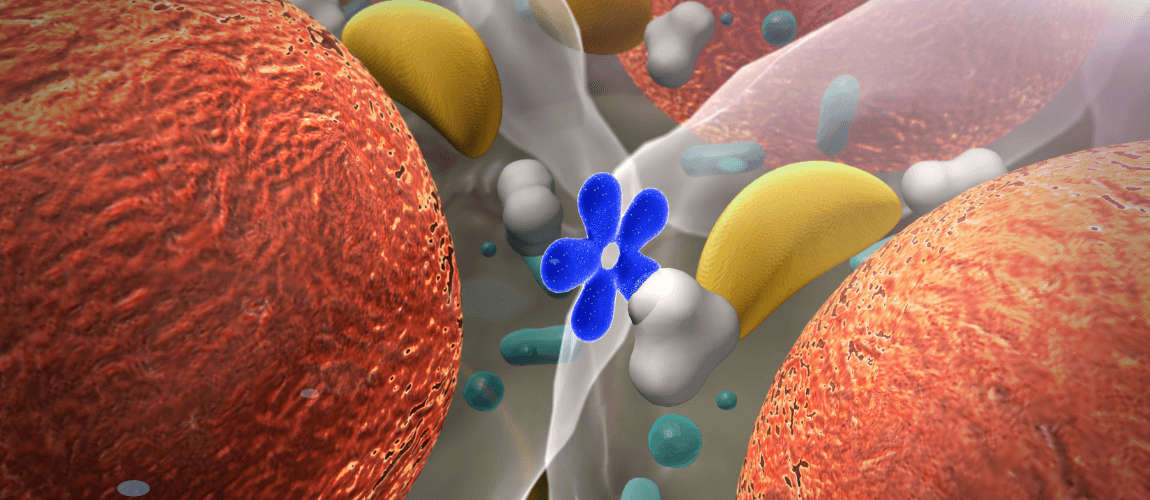Hormones are the chemical messengers of our body that conduct complex communication between different organs and try to maintain diplomatic relations between all systems. But what to do when we need to treat a hormonal imbalance? Read in the article of"Biopedia".
When a woman's hormonal balance is disrupted, whether by menstruation, menopause or endocrine disease, her entire body can feel the effects. Symptoms can include bloating, irritability, restlessness, difficulty falling asleep and weight gain or loss.
They can affect the health of hair, skin, nails on the surface and also multiple organs and systems in depth. That's why taking care of the health of our endocrine system and hormones is key, and proper treatment and management of hormone imbalances is not something to be overlooked.

In parallel, some basic changes and adaptations in diet, physical activity and lifestyle in general may be required. Let's learn more about the different methods of treating hormonal imbalances in thisBiopedia article.
Treatment of hormonal imbalance - conservative treatment

The treatment of hormonal imbalance will depend on what is causing it. If you have lower than normal hormone levels, the main treatment is hormone replacement therapy. Depending on which hormone is deficient, you may take oral medication (pills) or be given injections.
For example, if you have low thyroid hormone levels (hypothyroidism), your doctor may prescribe synthetic thyroid hormone pills to replenish the natural hormone deficiency and support gland function. If you have a growth hormone deficiency, you will probably need to take synthetic growth hormone injections.
If you have higher than normal hormone levels, there are many treatment options depending on the cause. Options include medication, surgery, radiation therapy, or a combination of some of these.
For example, if you have a prolactinoma, which is a benign (noncancerous) tumor that causes excess prolactin (hormone), your doctor may prescribe medicine to shrink the tumor or you may need surgery to remove it.
Many diseases that involve a hormone imbalance, such as diabetes and thyroid disease, require additional medical treatment. Numerous supplements in pharmacies and stores claim to treat different variations of hormone imbalance or its causes, but few have been scientifically proven to have beneficial effects. Therefore, it is advisable to always consult a doctor before taking anything.
Apart from medical treatment, your doctor may recommend certain lifestyle changes to help deal with hormonal imbalances, such as managing stress levels, exercise routines, etc.
Treating hormonal imbalances - eating right

Proper nutrition is among the most powerful methods of treating hormonal imbalance and normalizing hormone levels in the body available to you. This is because it allows you to directly alter hormone levels (insulin, glucagon and eicosanoids) depending on the balance of macronutrients consumed at each meal.
Make sure you are eating regularly and within a healthy calorie range for your body. Aim to consume enough oily fish, omega-3 fatty acids, eggs, healthy proteins, vegetables and leafy greens.
Focus on alkaline foods or foods with a higher pH. What exactly does this mean? Alkaline and plant-based foods such as leafy greens and other low-calorie vegetables like broccoli, kale and cauliflower sprouts have a natural detoxifying effect on the body.
Choose free-range, wild-caught and clean protein sources as well as more alkaline fats such as avocado, nuts and olive oil. Other rich alkaline foods are tofu, cucumbers and sweet potatoes or sweet potatoes.
It is also recommended to take a magnesium supplement and drink a cup of high-quality green tea every day. Green tea can help lower blood sugar levels, which is especially important for people with insulin problems. Magnesium can also help us respond better to stress without stressing the body and imbalancing hormones.
Treating hormone imbalances - sleep also matters

Quality sleep and rest play a key role in combating hormonal imbalance. Hormones play a huge role in how you sleep, and your sleep plays a huge role in how your hormones are balanced. You need all five stages of sleep, about seven to nine hours of sleep a day, to maintain and balance your hormones.
For optimal hormone balance and enough quality sleep you need:
- Go to bed and wake up at the same time every day, as often as you can.
- Reduce blue light at night before sleep. This means not touching your phone, laptop or watching TV for at least two hours before sleep.
- Access sunlight in the morning and throughout the day as often as possible.
- Drinking water should be the first thing you consume in the morning. Don't start your day with coffee or fresh water, they come after the water.
- Establish a sleep routine that will help you give your body enough rest on a regular basis so that the body regenerates and is healthy.
Treating hormonal imbalances - physical activity

Regular exercise is important when it comes to hormonal imbalances. It's not just about weight, which usually rises rapidly with hormone imbalances and endocrine disorders. Exercise can also help regulate our metabolism and have an effect on how much cortisol is released into our bodies.
In fact, weight loss has been shown to improve a number of hormonal and endocrine diseases and conditions such as polycystic ovary syndrome and erectile dysfunction, while studies have found that insulin sensitivity issues improve with regular exercise. Even regular walking has been shown to make a difference.
But how exactly does exercise help us? Exercise will increase AMPK activity, which has significant benefits on gene transcription factors that control metabolism and tissue repair, while stress control and improved sleep will reduce excess cortisol levels.
AMPK activity stands for "adenosine monophosphate-activated protein kinase." It's an enzyme that helps our bodies maintain healthy energy levels - a helpful and welcome boost of energy for anyone feeling sluggish and tired as a result of hormonal imbalances.
Separate waste collection - simple rules with a footprint on a brighter future
10 benefits of separate waste collection





Comments